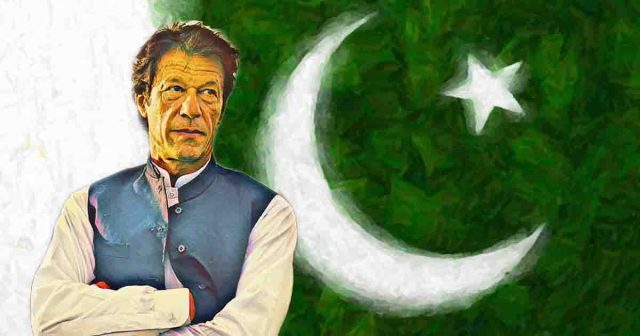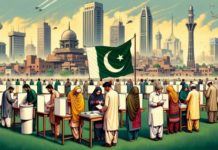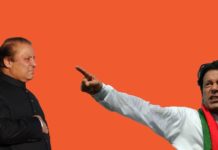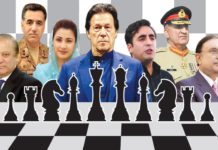Last year, voters in Pakistan queued up in the scorching heat of July month and voted for the Pakistan Tehrik-e-Insaf (PTI) in a bid to create a ‘’Naya Pakistan”. Imran Khan throughout his campaign portraying both the Pakistan People’s Party (PPP) as well as the Pakistan Muslim League-Nawaz (PML-N) as status quo parties, largely responsible for the major ills in Pakistan. His promises of lifting Pakistan to glory really galvanized sections of population, particularly the youth and urban middle class who viewed him as a would-be savior of Pakistan.
On August 22, 2018, Imran Khan finally took oath as the Prime Minister. The nation was really eager to see the concept of a ‘Naya Pakistan’ translating into reality. However, just nine months down the line, the promises of making Pakistan a heaven have started turning into hell. It is not only the common man that is suffering but the people from middle class have also started feeling the heat in this PTI’s government. The unprecedented price hike in daily commodities and inflation, record increase in power and gas prices, continuous devaluation of Pakistani currency and hefty increase in petroleum products have really made the life rough in ‘Naya Pakistan’. Resultantly, the newly found romance for PTI seems to be fading away within no time. Now, the question arises as to why the PTI failed to live up to its promises made to the nation. Is it really PTI doing all this or someone else calling the shots on behalf of PTI’s government?
The hard fact is that PTI’s leadership was fully cognizant of the economic difficulties before coming to power. Imran Khan exactly knew that the foremost challenge for his government would be the ‘revival of economy’. But he always somehow gave the impression that his PTI had done its homework and was fully prepared to take on the economic challenges facing Pakistan.
Asad Umar was always projected by Imran Khan as a brand boy of PTI’s economic team who would fix all the problems facing the ailing economy of Pakistan. However, the man who was projected as PTI’s economic wizard over the years was removed from finance ministry on account of a poor performance just after eight months. One really wonders about the decision making of our premier. Either the decision to appoint Asad Umar as a finance minister was erroneous in the first place or the decision to remove him from the ministry was wrong. How could one remove the finance minister who was in the midst of negotiations with the IMF and the budgetary process? One may have differences with Asad Umar but the timing of his removal was not at all desirable. He should have been afforded at least one year so that he had the opportunity to present the first budget that might well have been the litmus test for his performance.
As usual, the replacement of Asad Umar is very interesting. Mr Hafeez Sheikh is always found ready with his brief case whenever there is a slot vacant in the finance ministry. He has been the finance minister of both General Musharraf and PPP-led government in the past. One really needs to understand that if this man couldn’t do any wonders in the past regimes, how one can expect miracles from him now. Interestingly, as soon as we have our new finance minister and governor of the State Bank in place; the agreement with the IMF was finalized within no time whereas the same IMF team was not coming to the terms with Asad Umar. This is really something to ponder. Bilawal Bhutto also made interesting remarks about the recent negotiations: “IMF is negotiating with IMF.”
Dr.Qaiser Bengali, a renowned economist while addressing a seminar the other day accused the government of practically handing over the country to a New East India Company, World Bank and IMF. Dr. Bengali further pointed out, “we currently have a finance minister and governor State Bank who have come from abroad. Since 1993, we have had these ‘fly in, fly out’ consultants (Moin Qureshi, Shaukat Aziz, Hafeez Sheikh etc). The technocrats that don’t have their roots in the people are there for the money”.
Another interesting change of face in the recent cabinet reshuffle is that of Firdous Ashiq Awan in place of Fawad Chaudry. One really wonders as to why she has been brought in as a special assistant to prime minister for information and broadcasting. At least, the outgoing minister for information and broadcast was creating more headlines than this lady.
However, the biggest disadvantage of having a non-elected assistant is that she cannot represent the government in Parliament for not being the Member of the Parliament. Furthermore, she has nothing to do with the PTI. She joined the party just before the general elections in 2018. If at all, the change of information and broadcast minister was inevitable; there were better options available to the prime minister in the shape of Andleeb Abbas and Kanwal Shauzab who were original PTI faces and much more capable of presenting party’s viewpoint.
The comedy of error doesn’t end here. The services of few federal minsters have been reassigned to other ministries in view of their bad performances. For instance, Mr Fawad Chaudry has been made minister for science and technology as a punishment for his bad performance in the previous ministry. Similarly, Mr Ghulam Sarwar Khan has been moved to aviation ministry after performing miserably as the minister for petroleum. These changes amply highlight the seriousness of government about the said ministries.
Interestingly, we find at least 17 non-elected advisers and special assistants in the federal cabinet running the important ministries. For instance, Mr Razak Dawood is running five important ministries. This practice is totally against the spirit of a parliamentary democracy. Surprisingly, these non-elected special assistants and advisers are more powerful than the elected members and ministers. Also, not to forget Mr Jehangir Tareen (who does not hold any formal appointment in the incumbent government) is supposed to be the most powerful man in the PTI’s government. He negotiates with all the allied parties on behalf of the prime minister. He plays the role of a defecto deputy prime minister. Similarly, no one in the party can dare underestimate the likes of Mr Naeem-ul-Haq and the famous Zulfi Bukhari.
It won’t be wrong to say that there is hardly anything new in ‘Naya Pakisatan’. The PTI is exactly following the footsteps of its predecessors, PML (N) and PPP after assuming power; same IMF program and amnesty scheme, same kind of borrowings and indirect taxation, same blame game and accusations on previous regimes. Even, if we cast a glance at the federal cabinet; one finds boringly familiar faces: turncoats from PPP/ PML-N / Musharraf regime.
Ironically, the prime minister has made things simple: economy of Pakistan has been outsourced to the IMF while governance is left to the discretion of nonelected advisers and assistants. The elected representatives, meantime, may go on sabbatical as they have got no role in Imran Khan’s Naya Pakistan.








